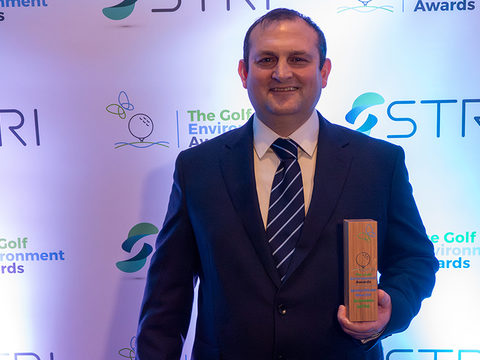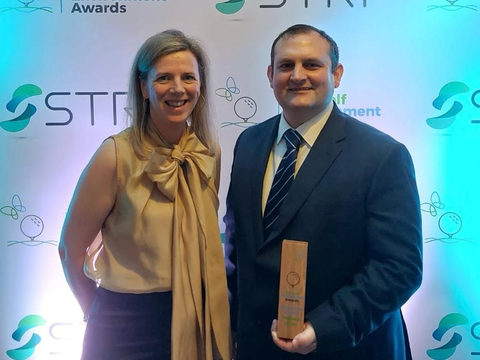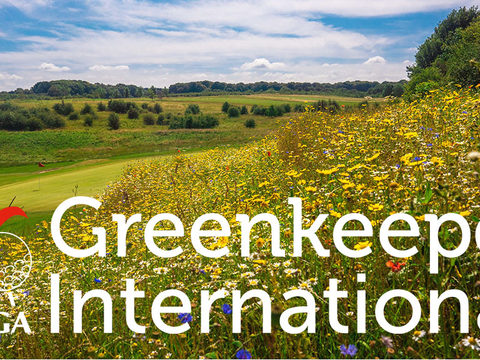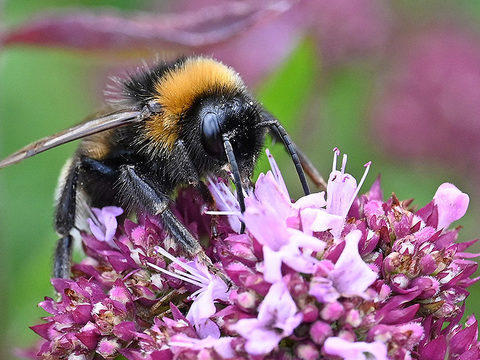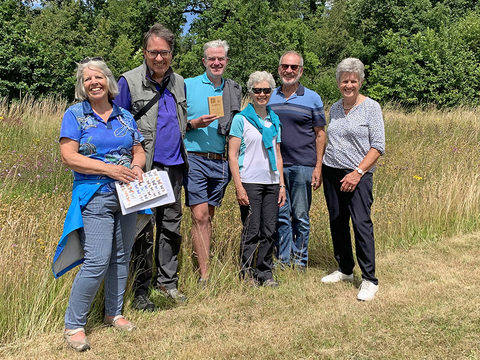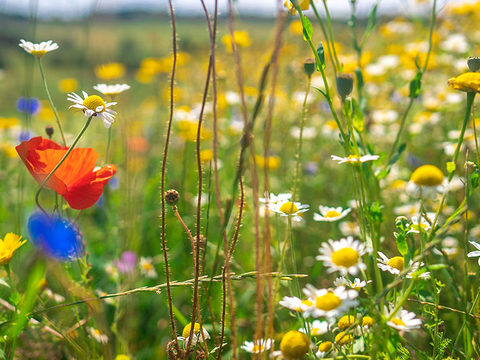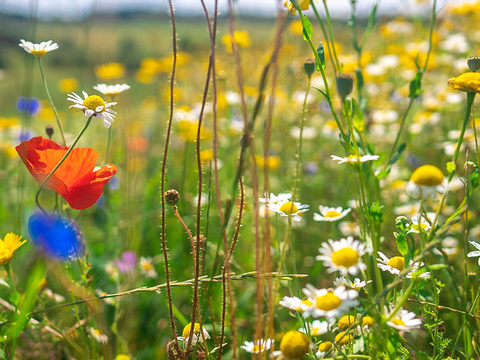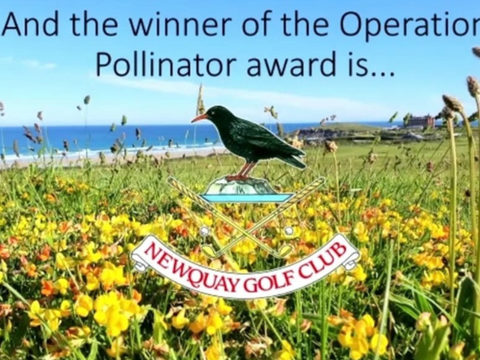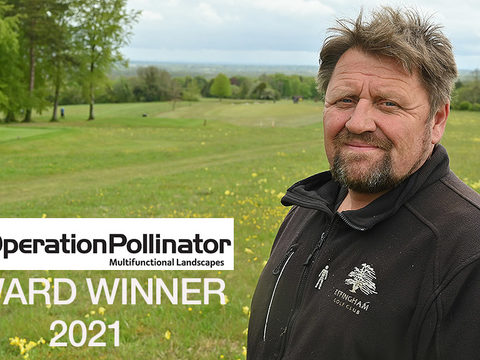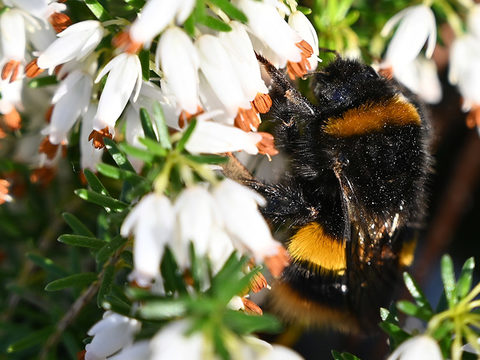Banchory Golf Club wins Operation Pollinator Award
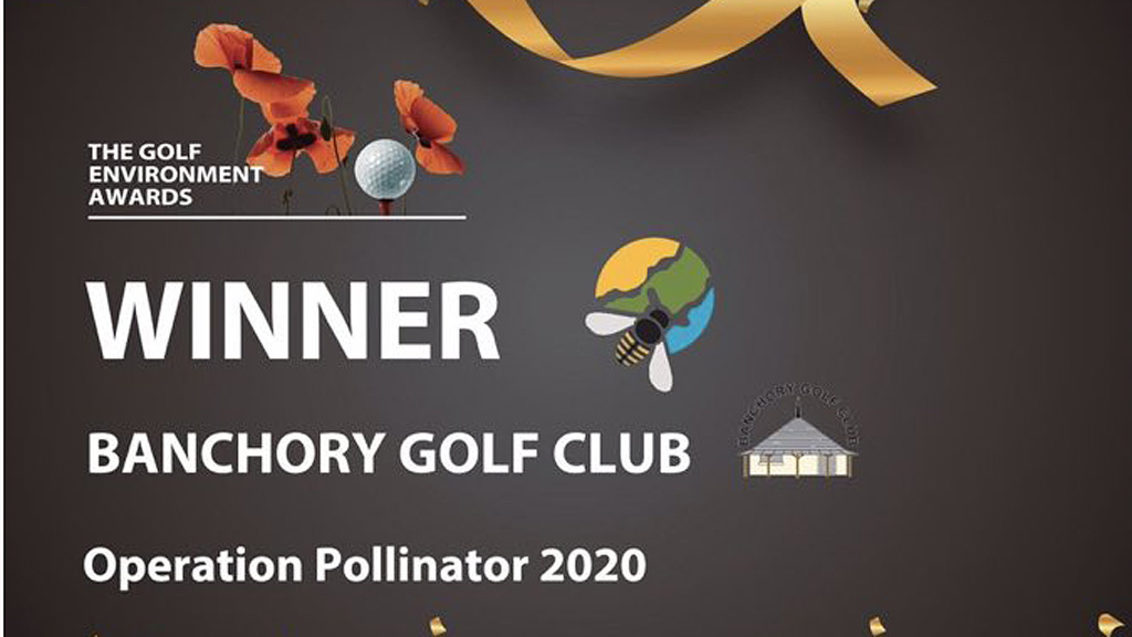
Banchory Golf Club, on Deeside in Scotland, has won the Syngenta Operation Pollinator Award at the Golf Environment Awards, presented at BTME 2020.
Collecting the Award at the prestigious GEA Dinner, course manager, Richard Mullen, was acclaimed for the course's success in establishing wildflower areas on rough and out of play areas that has seen biodiversity flourish.
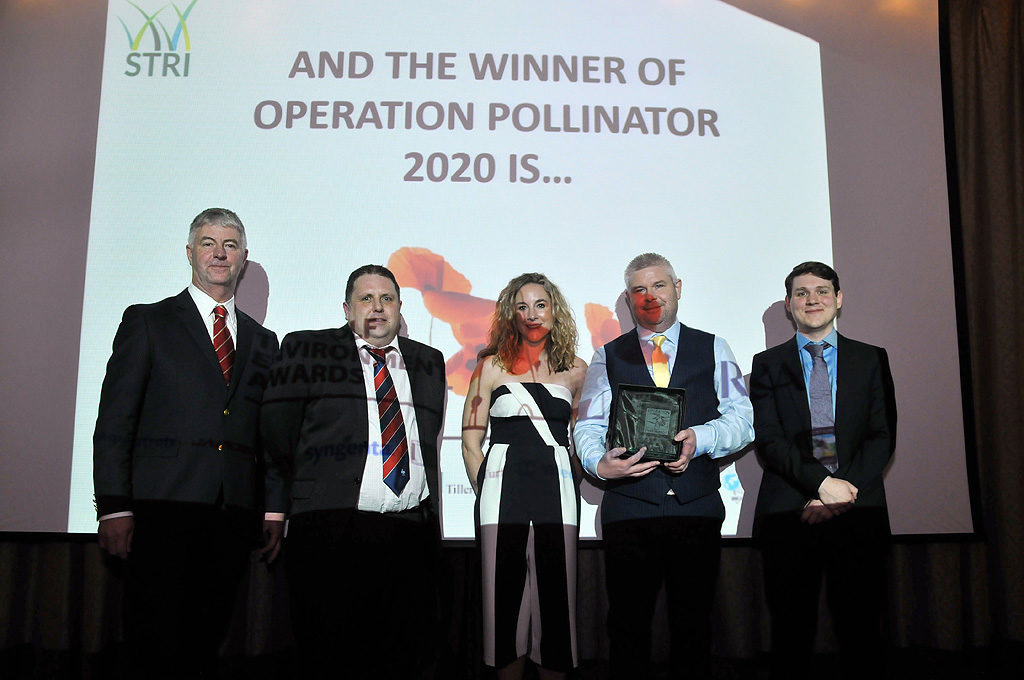
Richard received his Award from Caroline Carroll, Syngenta Operation Pollinator Manager, with STRI ecologists Bob Taylor (left) and Rowan Rumball (right).
Rowan Rumball, STRI Ecologist, praised all clubs involved with and nominated for the Syngenta Operation Pollinator Award, for providing essential natural habitats alongside well managed golf courses.
Banchory Golf Club has gone from strength to strength during 2019, vastly increasing the areas dedicated to wildflowers, enthused Rowan.
"Naturally seeded areas and also areas sown with species that are appropriate to the local region are both present. STRI ecologists saw a diverse range of invertebrate species that can only be explained by a course that has been managed appropriately," he added.
Along with winning the Syngenta Operation Pollinator Award at BTME, Richard was also a finalist in the Conservation Greenkeeper of the Year Award and picked up the BIGGA Excellence in Communication Outreach Award 2020.
Richard highlighted: "Still overwhelmed with this, delighted to have been awarded this for work that I see as necessary and important."
Banchory Golf Club sits around 20 miles south west of Aberdeen, running along the north bank of the River Dee.

In addition to its work to encourage pollinators and insect biodiversity, the adjacent woodland areas are an extremely valuable habitat for red squirrels and initiatives to recolonise and establish pine martins.
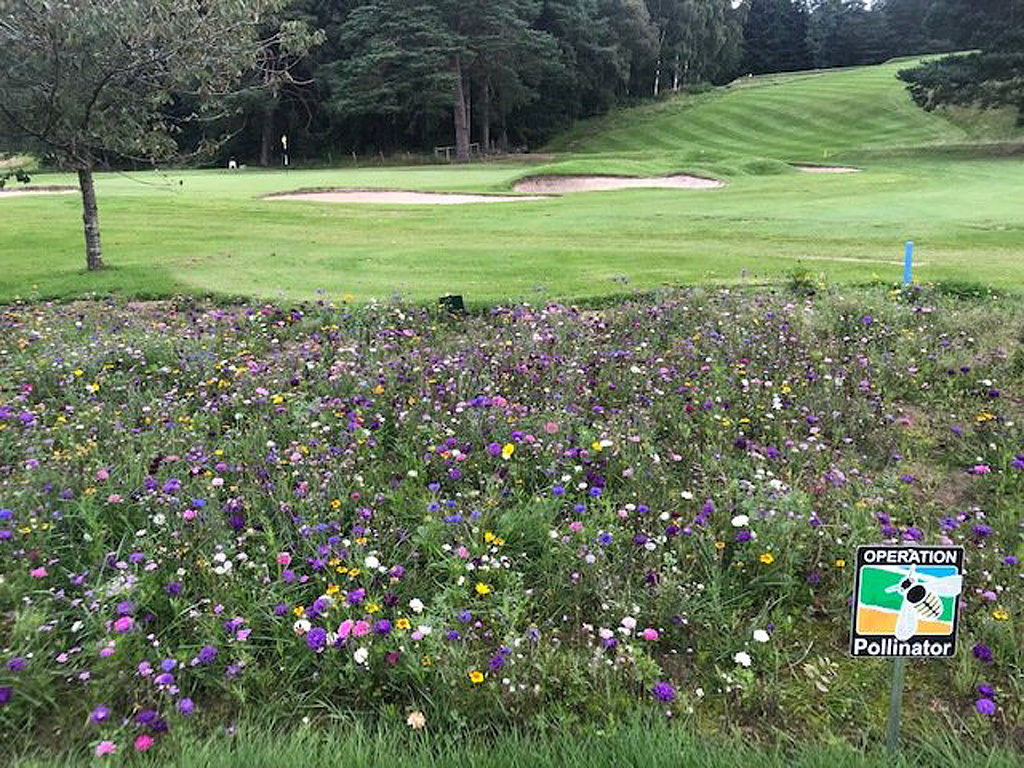
The environment team of Scottish Golf also praised the club's achievements: "Congratulations to Richard and the team at Banchory Golf Club for winning the Operation Pollinator Award at the Golf Environment Awards 2020."
Richard and the team's successful Operation Pollinator habitat creation provides some valuable tips and ideas for others to follow:
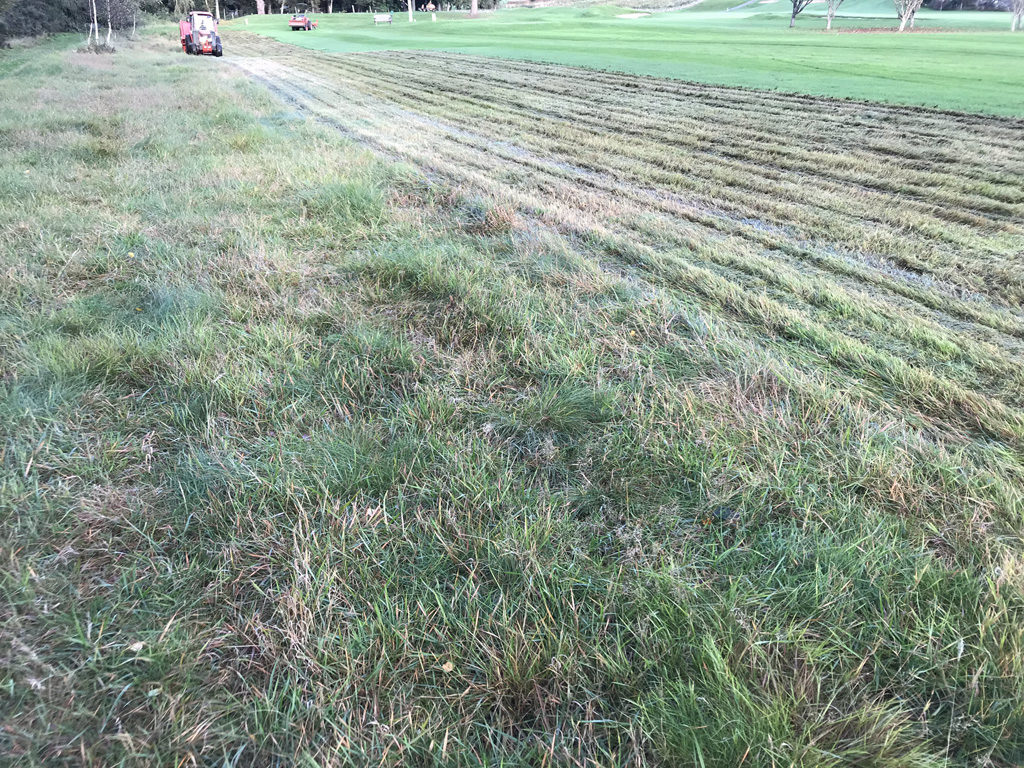
Establishing wildflower areas involves cutting back and removing existing material to reduce fertility and competition, along with exposing bare soil for seed to germinate.
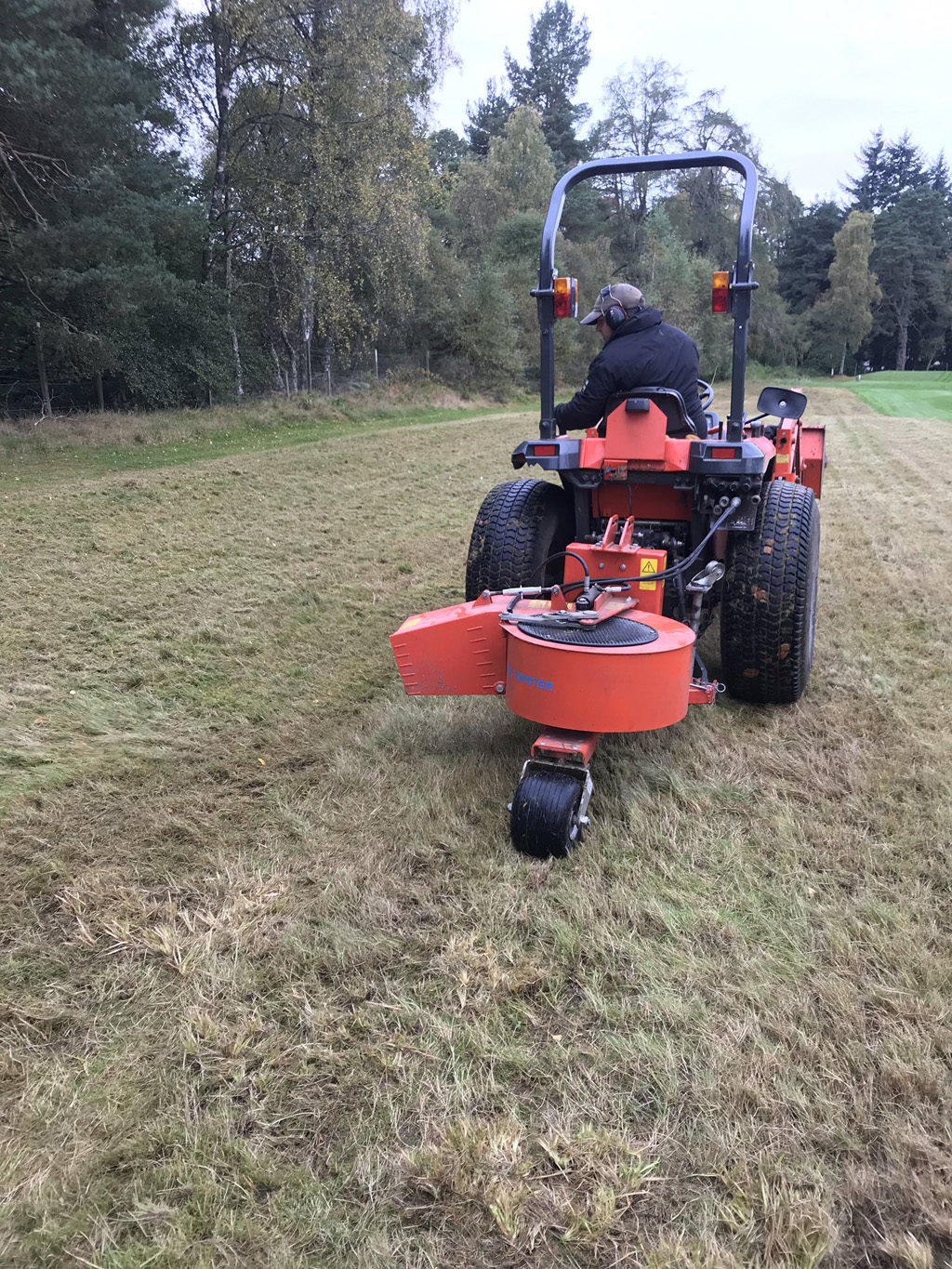
Seeding (above) has included using wildflower seed collected from the course and locally, giving provenance and natural resources. Yellow rattle has been sown among the species mix, to reduce the vigour of competitive grasses.
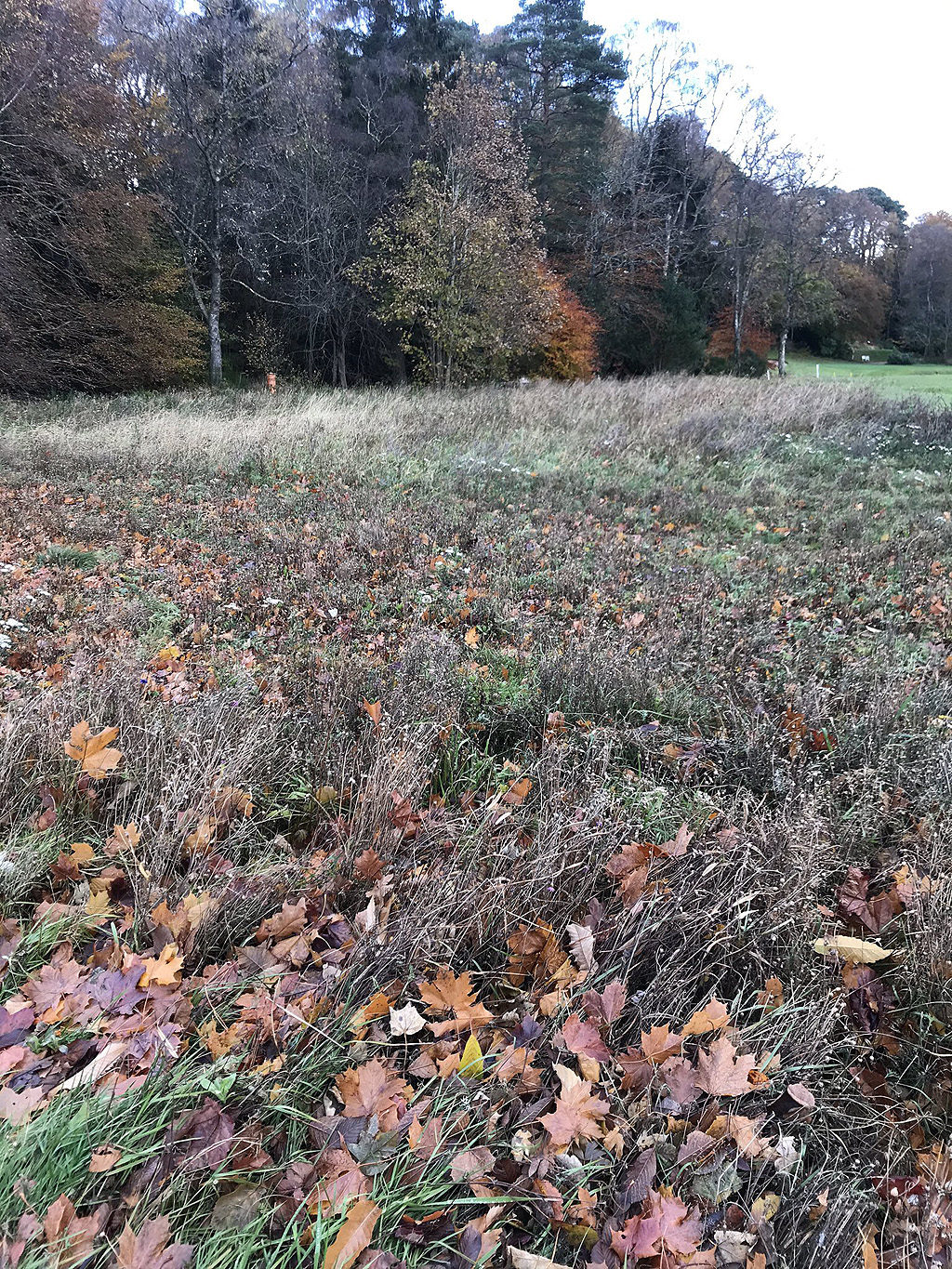
Richard also highlights beating wildflower areas (above) with stick when plants have set seed, in October, releases seed back onto the surface to regenerate the following year, before the areas are cut and collected later in the season.
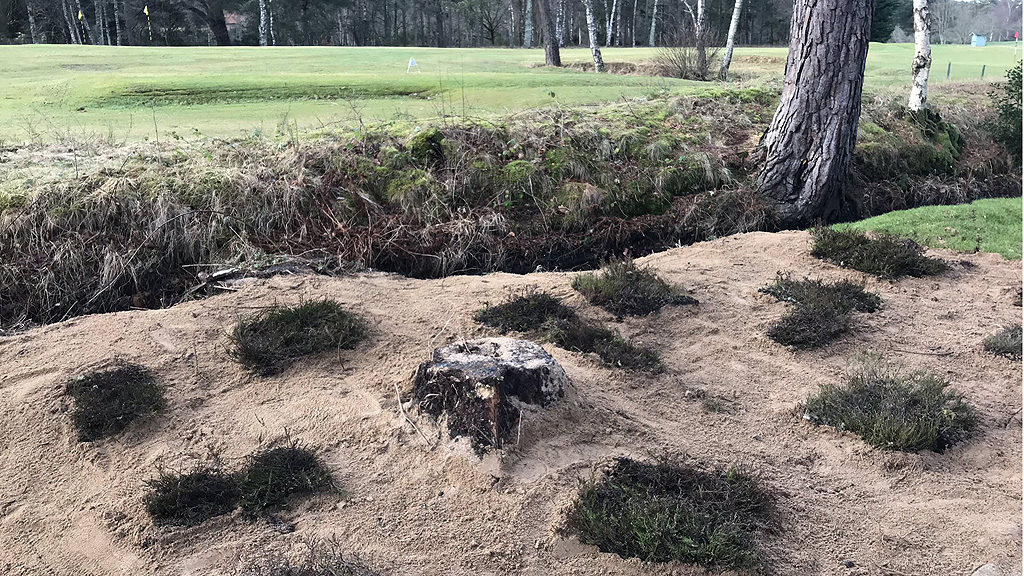
Wildflowers establish well on low fertility areas, and create a visual appeal which can be integrated into the Club's construction and imporvement projects, he points out. That has included sand scrape areas, with blocks of native grasses and sown wildflowers, creating further natural habitats for more wildlife species.
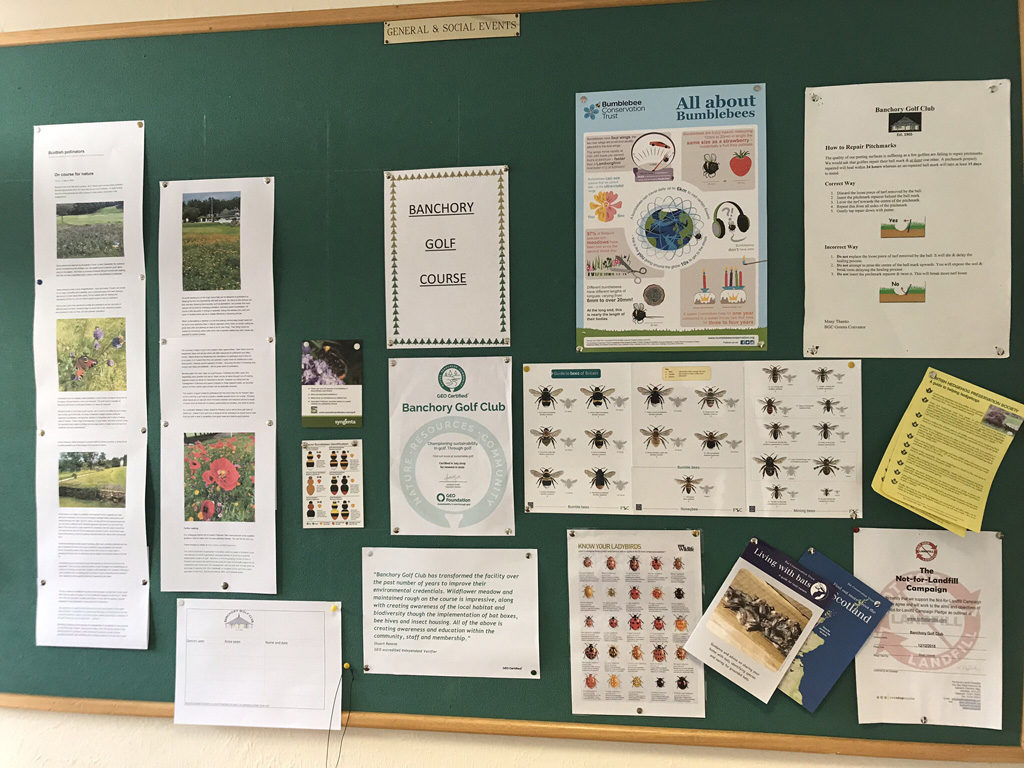
With all the environmental work undertaken at Banchory, maintaining player support from the club is crucial, with regular updates of what's happening and what to look out for on the course, including bumblebee identification guides.
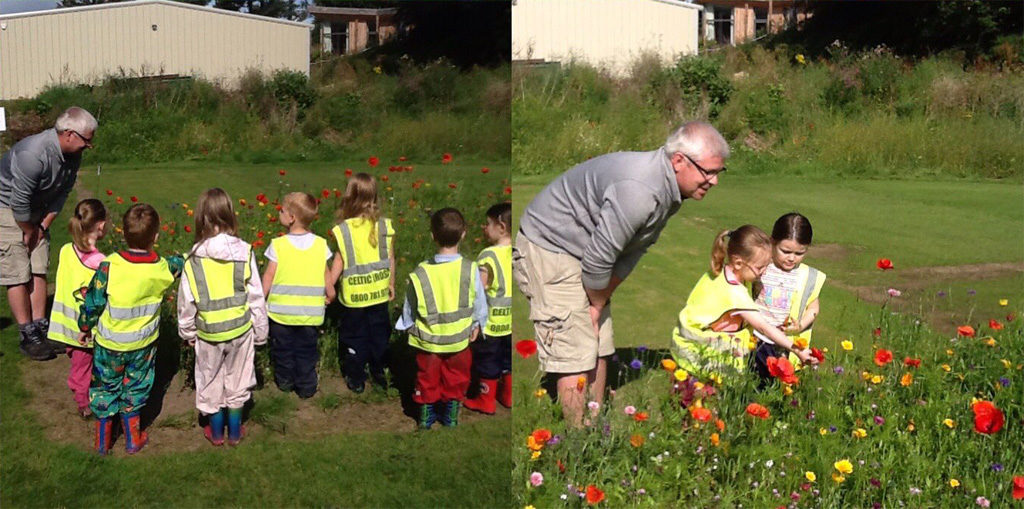
And Richard is keen for the whole team to engage with the local community, including regular visits from schools to the course to see the work involved, as well as the huge range of wildlife and biodiversity its initiatives have encouraged.

